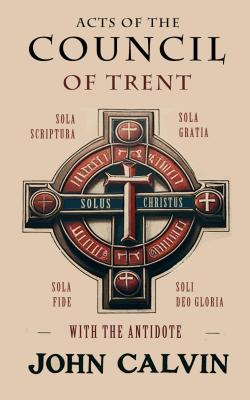"Acts of the Council of Trent with the Antidote" by John Calvin is a critique of the Council of Trent, a significant 16th-century ecumenical council of the Roman Catholic Church. Calvin, a central figure in the Reformation, presents a vigorous theological argument against the Council's decrees and canons, asserting that they do not align with scriptural teachings and principles of Christian faith. He meticulously dissects the proceedings and decisions of the Council, arguing that they were influenced more by political and personal interests than by genuine spiritual guidance or biblical truth.
Calvin's work is notable for its rigorous analysis and its foundational role in Reformed theology. He challenges the authority of the Council by advocating for the supremacy of the Scriptures in guiding Christian doctrine and practice. By doing so, Calvin reinforces the Reformation's core tenets, including the doctrine of sola scriptura (Scripture alone) and the priesthood of all believers, emphasizing a return to the original and unadulterated teachings of Christianity as presented in the Bible.
John Calvin to the pious reader.
Admonition and exhortation of the legates of the Apostolic
See to the fathers in the Council of Trent.
Calvin's preface to the antidote.
On the prefactory discourse by the legates in the first session and other preliminary matters of the council.
Decree published in the second session of the Holy Council of Trent.
On the decree of the second session.
First decree published in the third session of the Council of Trent.
On the decree of the third session.
First decree of the fourth session of the Council of Trent.
Second decree of the fourth session.
On the fourth session.
First decree of the fifth session of the Council of Trent.
Second decree of the fifth session.
On the first decree of the fifth session.
